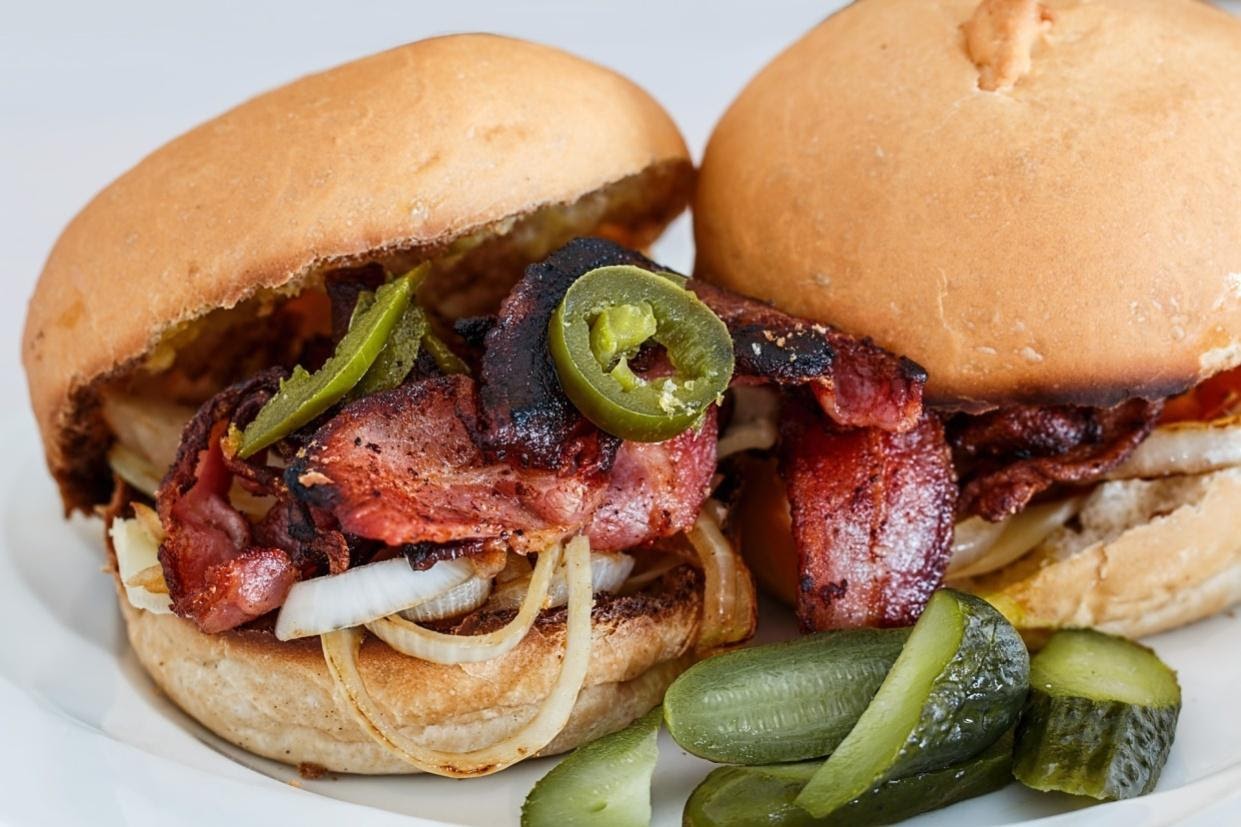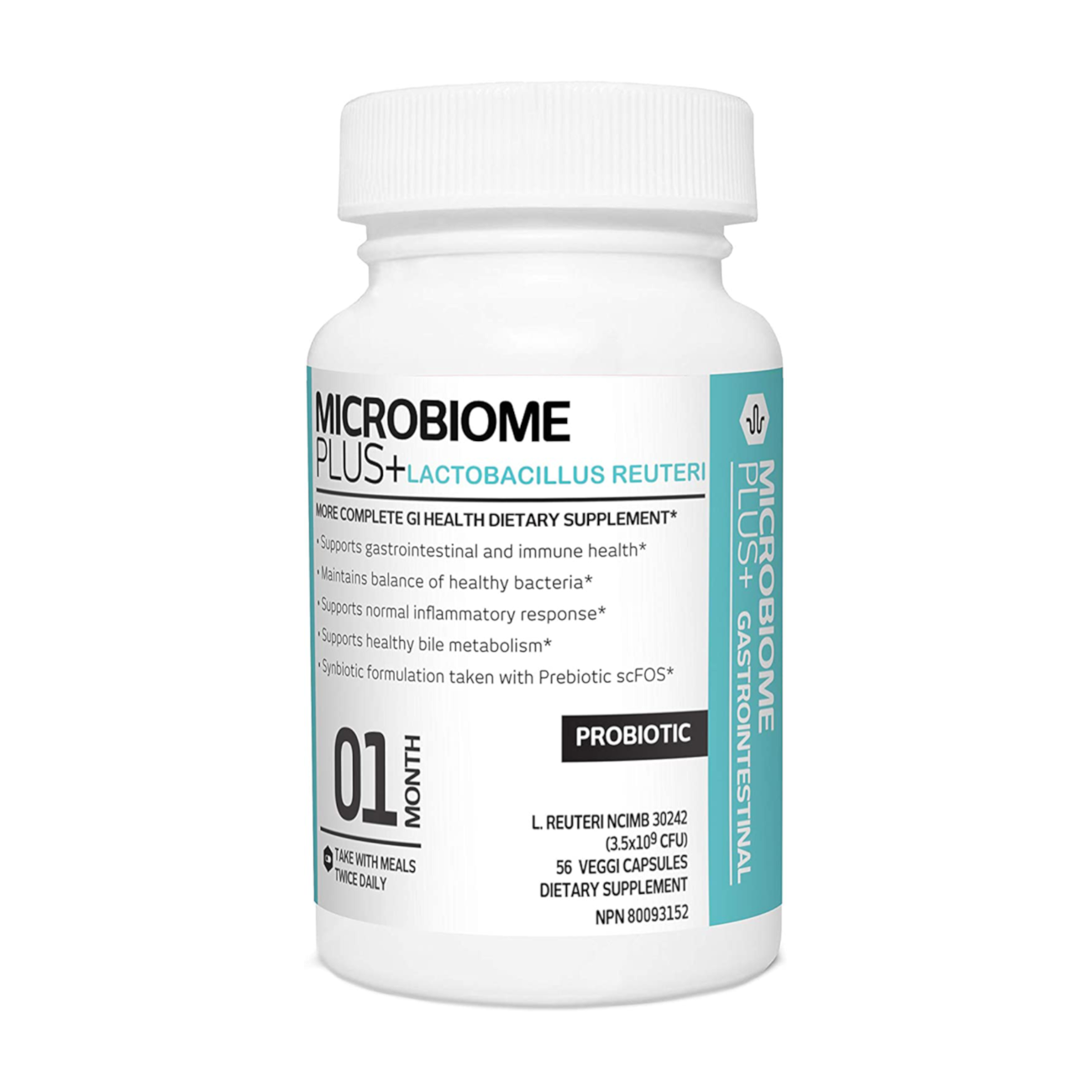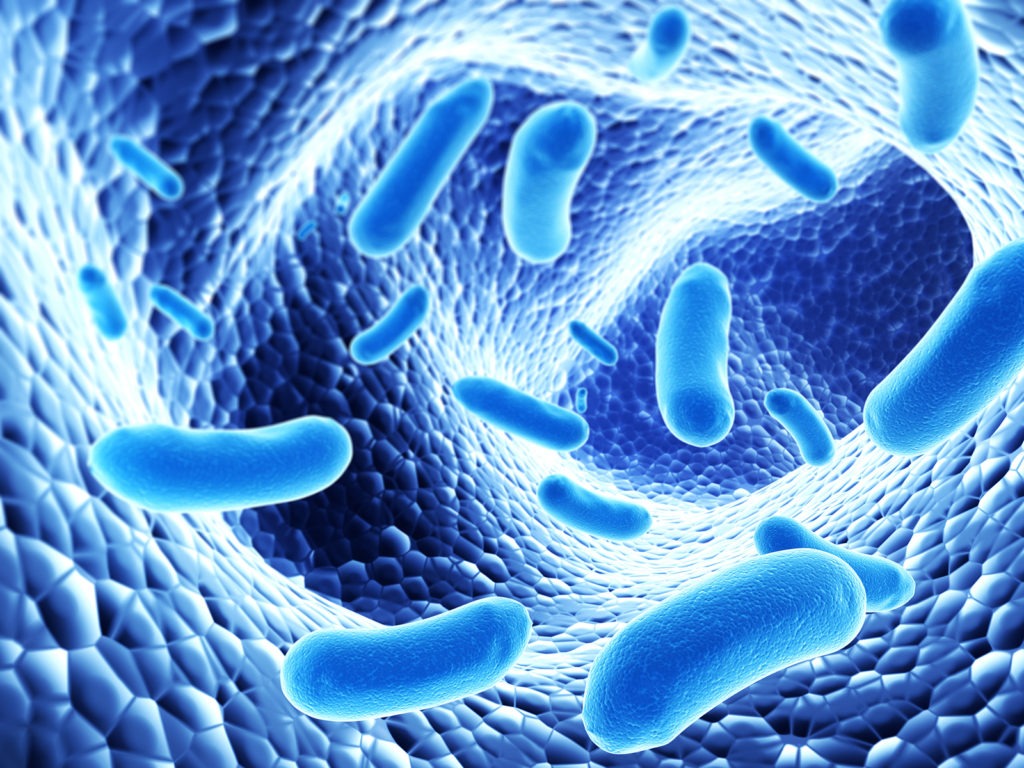Table of Contents
Introduction
Chapter # 1: How much do you know about your Microbiome?
- A little something about Microbiome
- Is it important for me?
Chapter # 2: Why am I losing my Microbiome?
Top 5 habits that wreak havoc on your Microbiome health
Chapter # 3: My Microbiome is out of Whack. What do I do now?
Step 1- Start by eliminating these 5 factors from your routine
Step 2- Diet matters. Here is what you should eat.
Step 3- Probiotics. Do they really work?
Step 4- What other supplements should I take?
Step 5- A healthy lifestyle is critical. Here’s what you should try
Chapter # 4: How do I check if my plan is working?
References
Buy Probiotics
Introduction
We are so preoccupied with our hectic routines that we often fail to focus on our health and well-being. When this attention is diverted elsewhere, you may end up feeling out of sorts and visit your doctor for a blood test that hints at a vitamin D deficiency or high cholesterol levels. The problem, however, has a cause that is more deep-rooted than your blood.
Your parents might have told you you’re special and different from the rest. It turns out they’re right! Each of us has a unique microbial ecosystem inside and out that is home to more than 100 trillion microbes, all responsible for keeping our Microbiome in balance. If you’ve ever experienced an unexplained pain or discomfort in your gut, or if you feel tired regardless of amount of sleep, keep reading. Your Microbiome might be unbalanced!
What Should I Know About My Gut Microbiome?
A little something about Microbiomes
The number of microbes throughout your body outnumbers the number of cells by 10 to 1. Microbes, otherwise known as microscopic organisms, is a term used to generalize a number of different types of life forms too minuscule to view without the use of a microscope. Some microbes you may be familiar with are bacteria, fungi, and viruses, all of which inhabit your body.
Let’s divide microbes into two simple groups: good microbes and bad microbes. A significant amount of good microbes reside in your gut where they support your immune system, protect you from various diseases, detoxify your body, and even assist in weight maintenance. The bacteria accountable for maintaining the health of our gut are known as probiotics.
A comparative amount of bad bacteria, or microbes, also inhabit our gut and can result in chronic diseases, inflammation, and obesity. The choices we make in our daily lives can impact our Microbiome and can throw it out of balance.

Wondering how your Microbiome evolved initially? A fetus’ gastrointestinal tract is sterile and the gut microbiota doesn’t form until after your birth. The Gut Microbiota Worldwatch stated that the digestive tract of a newborn rapidly colonizes with microorganisms from the mother and surrounding environment. For example, the gut microbiota of a breastfed child will differ from one fed with formula. In fact, newborns who are exposed to different environments have a more diversified Microbiome and are less likely to suffer from allergies and sensitivities to different types of foods like eggs, milk, and peanuts.
Is the Gut Microbiome Important For Me?
Each individual’s Microbiome is essential for their external and internal physical condition.
Our stomach and small intestine can struggle to digest what we consume. When this occurs, microbes aid in the digestion process by providing our bodies with the nutrients we need. An imbalance in the gut ecosystem can lead to indigestion and obesity, both of which are major healthcare issues. A research study showed that using a probiotic supplement containing L. reuteri NCIMB 30242 caused significant reduction in total, as well as harmful, fractions of cholesterol.
In another study, researchers found that, in contrast to a placebo, a L. reuteri NCIMB 30242 based probiotic was capable of increasing the blood levels of vitamin D by 22.4%. These vitamins are fundamental to a properly functioning immune system. Your immune system, when vulnerable or compromised, can further disrupt the balance of the gut Microbiome by making it more susceptible to bad microbes or bacteria.
We previously discussed the influence of a more diverse Microbiome in newborns on food allergies. If low in diversity, the Microbiome can have long-term effects on a child’s development. Conversely, if a Microbiome is overpopulated with certain types of bacteria, that overpopulation can wreak havoc on the balance of your Microbiome, as well.

Let’s figure out what’s going on in your Microbiome and determine how to restore gut health.
Why Am I Losing My Microbiome?
There are multiple factors that can impact the destruction of your Microbiome. While a stool analysis can be used to determine whether your gut harbors healthy microbiota, there are some other strategies you can use to assess your current health to determine the composition of the microbial community in your gut.
Factors that can wreak havoc on your microbiota health include:
Multiple cravings for sugar and highly processed foods
It’s normal to crave something sweet following a long day at work or school, especially if you missed a meal. Our bodies are automatically programmed into craving sweets when blood sugar levels decline.

Recent studies have shown that the microbes found in your gut can impact our dietary preferences. Let’s say you have a sweet tooth and over consume sugary substances. This surplus intake of refined sugars leads to the development of pro-inflammatory microorganisms in your gastrointestinal tract. These microbes produce compounds that create additional cravings due to the dependence of their survival on these food types.
Food Intolerance
With a well-developed and diversified Microbiome, you shouldn’t have a problem digesting any of the food you consume. However, if your Microbiome is poorly matched to your dietary intake, food intolerance ensues. For instance, if you’re raised consuming a vegetarian or vegan diet and decide to switch to a more carnivorous diet in adulthood, your gut would have trouble processing the food due to the lack of microbes that assist in its digestion. Factors like food intolerance contribute to gastrointestinal distress, as well as a leaky gut.
Depression
Recent evidence has shown that chronic depression can, in some cases, be related to an inflammatory disorder. The microbes residing in our gut have a sizable effect on our brain function and mental health. For example, while healthy gut bacteria can promote anti-depressive effects, other more hazardous microbes assist in inducing anxiety or depression.
Irritable Bowel Syndrome And Other Gastrointestinal Issues
Gastrointestinal issues are usually attributed to a poor diet, allergies, and stress.However, these issues can be more accurately attributed to an imbalanced gut Microbiome that lacks diversity and resilience. Gastrointestinal issues present with:
- Gas
- Bloating
- Bad Breath
- Loose Stools
- Constipation
If you find yourself experiencing one or more of the above signs, chances are that your Microbiome is out of whack.
If you’re experiencing any of these symptoms, here are five habits to avoid if you’re wondering how to restore gut health:
Restoring Gut Health: Things to Avoid
1. Antibiotics
Over the counter drugs and medicines are knee-jerk solutions for ordinary ailments.
The intake of antibiotics is extremely destructive to your Microbiome. Antibiotics not only wipe out the bad bacteria in your system, but also significantly diminish the probiotics that are crucial to your digestion and immune system. The use of antibiotics should be on an as-needed basis. If you are prescribed antibiotics appropriately, you also must focus on the reintroduction of good bacteria, or probiotics, after your antibiotics course is complete.

2. Chlorinated Drinking Water
The use of chlorinated drinking water is detrimental to friendly gut microbes due to chlorine’s ability to kill off any bacteria it encounters.

3. Altered Fats used in Food products
Our body requires fats for the production and maintenance of cell walls. The fats we consume in our diet form an impermeable protective layer that prevents toxins and pathogens from entering into our bloodstream. Fast foods contain altered fats that render the cell walls more permeable, allowing the invasion of harmful agents into our system. The original cell walls made from authentic fats are actually the dwelling area for most protective microorganisms in our bodies. Think of it this way: a weak or broken cell wall is like a broken sewage pipe that ends up leaking into your system and contaminates everything it comes in contact with.

4. Increased Consumption of Carbohydrates
We already discussed the negative impact of high sugar intake on your Microbiomes. The surplus intake of foods high in carbohydrates can also lead to a drastic imbalance in the microbial system, since this is because bad bacteria feed on carbohydrates and sugars. Focusing on a more Asian dietary pattern and saying good riddance to the standard Western diet is an ideal way to help minimize the consumption of carbohydrates.
5. Stress
Recent studies suggest that red squirrels residing in a low-stress environment have healthy Microbiomes. Researchers tested the squirrels’ Microbiomes, as well as their stress hormones, and found that squirrels with higher stress levels had less bacterial diversity, which is considered an indicator of poor Microbiome health. A later study revealed that enhanced stress levels in the squirrels were secondary to the increased levels of potentially harmful bacteria. So it’s safe to say that it wouldn’t hurt to lay back and relax a little!

How to Improve Gut Microbiome When It's Out of Whack
There’s no need to fret if you believe your Microbiome isn’t functioning the way it should. Luckily, getting your Microbiome back on track is moderately easy and can be done from the comfort of your home without constant trips to the doctor.
Follow these five easy steps to safeguard the condition of your Microbiome!
Step 1: Start by eliminating these 5 factors from your routine

Step 2: Diet Matters. Here’s what you should eat.
If you’re trying to determine how to restore gut health, your diet is a great place to start.
Given that the majority of beneficial microbes are located in your gut, it’s vital to keep track of what you consume. Chances are, your Microbiome is out of whack due to your diet.
One of the mandatory additions to your diet to fix the topsy-turvy mess in your gut is fiber. Research has shown that individuals living in the western hemisphere lack the consumption of dietary fiber by approximately 50%. This trend is identified by nutritionists as the “fiber gap.” Fiber is an essential nutritional provider for the bacteria that resides in your gut. Fiber can lead to the depletion of some microbes in your gut, reducing the diversity of your Microbiome.

Try fermented plant-based foods like tempeh and miso. These foods are in demand due to their ability to restore the healthy microorganisms in your gut, which then outnumber the unhealthy bacteria and microbes.
Indulging in fermented plant-based foods has colossal benefits. These foods are rich in probiotics, boosting the body’s overall Microbiome, which improves the health of the intestinal cells, immune function, and alleviates allergies.
Step 3: Probiotics. Do they really work?
We’re already aware that probiotics are the “good” bacteria in our body, but what makes them different from other microbes or bacteria?
Probiotics have been more successful in the treatment of gastrointestinal issues. Controlled trials have shown that supplementation with Lactobacillus reuteri species can reduce the frequency of diarrhea by 50% in adults. Similar results were seen in children, too. Moreover, enriching the gut microbiota with Lactobacillus reuteri species can have benefits like improved intestinal microbiota and enhanced insulin sensitivity.
To get the most out of probiotics, it’s recommended to pair your probiotic with a prebiotic supplement. So what’s the difference between probiotics and prebiotics? Turns out, prebiotics act as food for the good bacteria residing in your gut.
For example, Microbiome Plus+ Gastrointestinal is a dietary supplement containing Lactobacillus reuteri NCMIB 30242 used in recent successful studies to help rebalance the healthy bacteria in your gut and provide support in normal digestive functions. This dietary supplement is an amazing blend of probiotics (Lactobacillus reuteri NCMIB 30242) and prebiotic fiber. This blend ensures the maintenance of a healthy gut that is in its best shape!
Step 4: Take the right supplements.
Other than probiotics and prebiotic powders, there’s a range of beneficial supplements you can consume to re-balance your Microbiome.
Magnesium is a crucial substance required by enzymes to enhance and maintain function in the gut. On average, you should consume approximately 320-420 mg of magnesium daily. Magnesium supplements help fill the existing void in our diets and improves your immune health and aids the body by converting insulin into energy. Some good natural sources of magnesium are:
- Spinach
- Chard
- Yogurt or Kefir
- Almonds
- Bananas

Fish oil is mainly used for the prevention of inflammation and is recommended to pregnant women due to its potential to promote brain development. This oil is loaded with omega-3 fatty acids and modifies the gut microbiota along with its anti-inflammatory and immunity-boosting properties, offering a host of benefits for our Microbiome.
A recent study showed that combined with probiotics, fish oil assists in the probiotic’s survival in the gut, regardless of the presence of bad bacteria.
One of the most plentiful natural amino acids in your body is L-Glutamine. This acid assists in fueling white blood cells, which benefits your immune system. Intake of L-glutamine can help enhance our gut Microbiome by reducing gut permeability, healing and protecting the intestinal wall.
Step 5: A healthy lifestyle is critical. Here’s what you should try.
As you can tell, a balanced diet is crucial for the well-being of your Microbiome and can be achieved without the help of a nutritionist or doctor. However there are other factors that can destroy your Microbiome, even if you follow a constant, healthy diet.
Stop Smoking:
Put down that cigarette!
The dangers of smoking are countless and can also impact your gut Microbiome. Smoking amplifies the amount of Bacteroides-Prevotella in healthy individuals, putting them at risk for Crohn’s Disease.
Sleep:
Getting 7-8 hours of deep, restful sleep helps relax your body and regulates your metabolism.
Breathing and Meditation:
We’ve already discussed the major role stress plays in disrupting the balance of your Microbiome. Regular breathing exercises every morning can calm both the mind and muscles, preparing you for a stress-free day.
Try meditating or practicing yoga poses to further regulate your breathing pattern and reduce stress. Even 10-15 minutes of meditation is a great start to your day.
Exercise:
Exercise assists in burning bad microbes you may have consumed and keeps your Microbiome healthy.
How do I check if my gut microbiome is improving?
So you’ve changed your diet, altered your lifestyle, and have incorporated relaxing therapies into your day.
Now what?
Within the first 24 hours of healthy eating and taking supplements, your body is introduced to a wide range of probiotics and starts to balance itself based on what it’s receiving.
Other than feeling less tired and being more productive throughout the day, other easy methods can be used to determine whether your Microbiome is on the right track.
- Check your stool on a daily basis. If the makeup of your stool has changed to resemble a sausage or tiny blob, it’s safe to say that you’re on your way to a healthier Microbiome.
- Your autoimmune flare-ups and acne calm down once your gut Microbiome regains balance.
- Check your weight! If you’ve shed a few pounds in the first week of your new diet plan, you’re good to go.
Currently, many adults experience the effects of having an unbalanced Microbiome and are oblivious to the cause. While changing your diet and lifestyle can be challenging, focusing on eating home-cooked meals, exercising, and even investing in occasional visits to the spa, can make a great difference.
If you’re still experiencing trouble, you know exactly which supplements can help you navigate your path to a healthy gut Microbiome.
References:
- https://www.ncbi.nlm.nih.gov/pubmed/16696665
- https://www.ncbi.nlm.nih.gov/pubmed/25780308
- https://www.ncbi.nlm.nih.gov/pubmed/21992955
- https://www.ncbi.nlm.nih.gov/pubmed/23886977
- https://www.ncbi.nlm.nih.gov/pubmed/19149514
- https://www.ncbi.nlm.nih.gov/pubmed/24499072
- http://www.nature.com/ajgsup/journal/v1/n1/full/ajgsup20127a.html
- http://gut.bmj.com/content/53/5/620
- https://www.ncbi.nlm.nih.gov/pmc/articles/PMC3426293/
- http://learn.genetics.utah.edu/content/microbiome/
- http://hmpdacc.org/micro_analysis/microbiome_analyses.php
- https://phys.org/news/2016-01-link-stress-unhealthy-microbiomes.html
- http://pubmedcentralcanada.ca/pmcc/articles/PMC4392891/
- http://advances.nutrition.org/content/5/1/114.full
- http://www.microbeworld.org/what-is-a-microbe
- http://microbiologyonline.org/about-microbiology/microbes-and-the-human-body
- http://www.mayoclinic.org/healthy-lifestyle/nutrition-and-healthy-eating/in-depth/high-fiber-foods/art-20050948
- http://advances.nutrition.org/content/4/1/16.full
- https://www.sciencenews.org/blog/scicurious/low-fiber-diets-make-gut-microbes-poop-out
- http://www.pcrm.org/media/online/sept2014/seven-foods-to-supercharge-your-gut-bacteria
- https://www.ncbi.nlm.nih.gov/pubmed/27035371
- http://www.health.harvard.edu/vitamins-and-supplements/health-benefits-of-taking-probiotics
- https://www.ncbi.nlm.nih.gov/pmc/articles/PMC4303825/
- https://www.ncbi.nlm.nih.gov/pubmed/23609838
- https://sciencelife.uchospitals.edu/2014/11/25/do-probiotics-work/
- https://www.ncbi.nlm.nih.gov/pmc/articles/PMC3539293
- https://www.ncbi.nlm.nih.gov/pmc/articles/PMC3002586/
- https://www.ncbi.nlm.nih.gov/pmc/articles/PMC4045285/
- https://www.ncbi.nlm.nih.gov/pmc/articles/PMC3539293/
- https://www.ncbi.nlm.nih.gov/pmc/articles/PMC207122/
- https://www.ncbi.nlm.nih.gov/pubmed/12369194
- https://www.ncbi.nlm.nih.gov/pubmed/22568660
- https://www.ncbi.nlm.nih.gov/pmc/articles/PMC4006993/
- https://www.ncbi.nlm.nih.gov/pmc/articles/PMC3105609/
- http://www.ncbi.nlm.nih.gov/pubmed/21552138
- https://www.ncbi.nlm.nih.gov/pubmed/9144122










